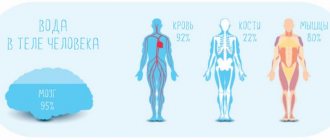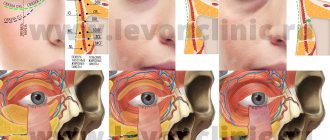- How to live without alcohol?
- Is it possible to get rid of cravings for alcohol?
- How is the fight against alcohol addiction going at the Center for Healthy Youth?
Find answers to all these questions in the article.
Recognize withdrawal symptoms
Alcohol addiction is an insidious disease that is difficult to cope with. Even with treatment, it reminds itself for a long time with the presence of withdrawal symptoms. They are the ones who prevent you from completely giving up your bad habit. It is extremely important for a person to learn to recognize the symptoms of withdrawal in order to have the strength and ability to avoid a relapse.
Quitting alcohol causes serious changes in the body. That is why, even in a sober state, an alcoholic continues to experience unpleasant symptoms:
- causeless mood swings;
- increasing anxiety and anxiety;
- feelings of fear and uncertainty;
- increase in emotional tension.
These manifestations are associated with the negative effects of alcohol on the nervous system. Depending on the degree of destruction of the body and the length of alcoholism, symptoms may persist for a year after quitting alcohol. It is very important to learn to recognize them and understand the nature of their appearance.
If a person allows himself to drink, the symptoms first subside, but then return and attack with even greater force. In this case, the recovery period is proportionally delayed.
How addiction begins
It all starts with a small dose of alcohol during the holidays. Then consumption becomes greater, drinks become stronger, and there are more reasons. Main signs of alcoholism:
- Loss of protective reflexes. The body reacts to poisoning with gag reflexes, but for alcohol addicts this feeling simply disappears.
- Memory losses. What happened during the celebration is forgotten. Many people think: “I don’t remember - it didn’t happen.”
- Behavior changes when drunk. The husband becomes aggressive, prone to violence, or vice versa, cries, complains about others who constantly offend him and do not pay due attention.
- Hangover syndrome. They get rid of it by taking another dose of alcohol - this will lead to further binge drinking.
- Withdrawal syndrome. During drunkenness, alcohol consumption is exceeded, which will lead to intoxication, nausea, migraines, weakness, lack of coordination, uncertainty in steps, anxiety, and guilt.
- Alcoholic dementia. Deterioration of well-being, cortical, learning functions, self-control, constant aggression.
- Delirium of jealousy. A special type of psychosis caused by suspicions of a spouse of infidelity, aggravated during intoxication.
- Delirium tremens. A mental syndrome that occurs during a hangover relapse. Indicators – increased heart rate, sweating, irritability, blood pressure, hallucinations.
If something from the list has been noticed, this has been repeated for a year or two, then you need to find a suitable method to help the alcoholic... If he is not attracted to food, does not need a shower, and requires another dose of ethyl alcohol contained in various cocktails, then Treatment of alcoholism in an addict becomes a priority. You need to treat yourself or contact a specialist.
Familiarize yourself with the disruption process
To begin an effective fight against alcohol addiction, you need to become familiar with the process of relapse and the peculiarities of its course. This will help you recognize the problem in a timely manner and maintain sobriety. Lack of knowledge leads to a misunderstanding of the situation and leads to a return to drinking. Competent support and professional advice during this period acquire special significance for a person entering the struggle for sobriety.
Among the obvious harbingers of a breakdown are:
- the appearance of a feeling of hopelessness;
- negative thoughts and decadent thinking;
- breathing problems;
- irritability and sensitivity to loud noises;
- pain and burning of the eyes;
- spasms and pain in the chest and heart area.
The severity and characteristics of symptoms are often individual in nature, which forces a person to be more attentive to his body. Only vigilance will help prevent a return to alcohol.
Free consultation with a narcologist
I agree to the processing of personal data
When is it time to start treatment?
Alcoholism develops gradually, unnoticed by the person and loved ones. Alcohol affects the brain. Dependence develops. The body integrates ethanol into its metabolic processes. The disease moves to the second stage, at which hangover and withdrawal symptoms appear. The main sign of addiction is a growing need for alcohol. An uncontrollable desire to drink appears at the slightest stress, due to troubles in the family or at work.
At this point treatment should begin. The addiction is progressing. The stages of alcoholism are described below. If you see similarities, then you should seek help
First. Constantly looking for a reason to drink. It is difficult for a person to control the amount of alcohol he drinks. The period of sobering up is accompanied by memory lapses. Zavilyansky syndrome develops - the patient may be in a state of apathy, but when alcohol is mentioned, he shows interest. This stage can last several years. But in adolescents and older people, the disease moves to the second stage after 1-2 years.
Second. The main symptom is the absence of a gag reflex when drinking alcohol in large quantities. The appearance of this symptom indicates the development of tolerance to ethanol. Binges occur, periods of sobriety are shortened. Severe withdrawal symptoms are observed, which can only be overcome by new doses of alcohol. The functions of the nervous system and internal organs are impaired. The patient’s personal qualities change - he becomes withdrawn, aggressive, jokes vulgarly and not funny.
Third. Binges can last for several weeks or months. Complete degradation of the personality occurs, and severe, often irreversible, complications develop. At this stage, symptoms of delirium or delirium tremens appear. Psychosis is manifested by insomnia, lack of appetite, tremors, hallucinations, and panic attacks.
Don't delay and start treatment.
If you start therapy at the initial stages of the disease, you can completely restore mental and physical health and avoid complications.
Without treatment, alcohol addiction leads to the development of dangerous mental and somatic disorders. Ethanol affects the brain, liver, and organs of the gastrointestinal tract. Alcoholics are often diagnosed with cirrhosis, pancreatitis, gastritis, peptic ulcers, and hypertension. Patients mentally deteriorate, intelligence and cognitive functions deteriorate.
According to WHO, 2.5 million people die from alcohol every year. Common causes of death are kidney, heart, liver failure, hypertensive crisis, heart attack or stroke.
Know the first signs of relapse
A breakdown threatens to reduce all physical and mental efforts associated with giving up alcohol to zero. That is why it is important to pay attention to the body’s signals and know the first signs of a breakdown in order to take timely measures and prevent a return to alcoholism. The first warning signs that a breakdown is approaching include:
- mood swings, with a negative mood becoming dominant;
- general deterioration of health;
- feeling of loss of control over life;
- depression and depression;
- obsessive thoughts that encourage drinking.
The appearance of even a few symptoms may indicate that the situation may soon get out of control. This cannot be ignored, so it is better to seek help in a timely manner. Specialists are always ready to provide psychological support that can prevent a return to alcohol.
How to give up alcohol on your own?
How to stop drinking beer every day and get rid of drunkenness? When an addict is sober, he feels uncomfortable, behaves irritably, gets nervous and dreams of drinking quickly. To get rid of discomfort, a person drinks. The longer the addiction, the greater the volume of alcohol. Soon, quite predictably, a binge ensues. During a drunken state, a person does not think about how to stop drinking alcohol; awareness usually comes after waking up when the condition worsens. He feels self-pity, guilt for what he has done, and fear. Stress and nervousness soon lead to another binge. A vicious circle arises.
Even if the addict has a strong will, the combination of physical and psychological dependence will not allow him to quit drinking on his own and get rid of alcohol addiction. On various mutual help forums for alcoholism, it is said that in order to get out of binge drinking, it is enough to reduce the daily dose and gradually reduce it to nothing. But not everything is so simple, abstinence will return the alcoholic to normal, as his condition will significantly worsen.
Find the benefits of sobriety, immerse yourself in religion, creativity, hobbies, and many other things are advised to replace alcohol so as not to drink. However, treating alcoholism is a complex process; conspiracies, prayers, folk remedies and advice will not help. During addiction, alcoholics often drink against their will, because they feel an irresistible craving for alcohol, and also know what awaits them if they abruptly stop drinking. It is impossible to solve the problem at the physical level, since the disease lives in the subconscious of the patient; the fight against alcoholism must be comprehensive.
Eliminate other types of dependencies
To effectively counteract alcohol addiction, you should minimize the influence of other addictions that can have a destructive effect on thinking, emotional state and psyche. The following can have a negative effect on the body:
- smoking;
- gambling addiction;
- binge eating;
- masturbation;
- compulsive actions.
The presence of one or more addictions significantly complicates the process of combating alcoholism. To increase the chances of success and reduce the likelihood of a breakdown, it is better to take a comprehensive approach to the issue of freeing the body from all addictions.
IV
Diffusion therapy is used to quickly remove a person from a drunken state. An alcoholic is given a drip, since in this case it is possible to quickly deliver drugs into the blood, bypassing the gastrointestinal tract.
The drip can only contain an isotonic solution, which helps remove ethanol and normalize the water-electrolyte balance. However, more often it is a whole complex of various drugs necessary for stabilization. These are drugs necessary for the normalization of metabolic processes, antioxidants. The results of the examination determine the composition of the dropper, which may include the following medications:
- Detoxification solution: glucose, hemodez, saline solution.
- Sleeping pills and sedatives.
- Antidepressants.
- Medicines of magnesium and potassium complex.
- Hepatoprotectors for restoring liver functions.
- Antiemetics.
- Cardioprotectors.
- Nootropics.
- Antiepileptic drugs.
Additionally, other medications may be prescribed if certain symptoms appear in the patient.
Change your social circle
Alcohol addiction is a social problem. To solve it, a radical revision of lifestyle, social circle, guidelines and values is often required. Often, in order to cope with pathological cravings, it is necessary to seriously restructure your entire lifestyle: find a new job and hobbies, change your environment and marital status, form a dream and look for ways to achieve it. Changing your focus on communicating with people who adhere to a sober lifestyle helps reduce the likelihood of a relapse.
Where to begin
Here are some useful tips from psychologists that will help you optimally influence a painful situation.
- Don’t forget - alcoholism is a chronic disease. If you are truly determined to help, acknowledge the very fact of the disease and stop being embarrassed at the mere mention of it.
- Stop viewing alcohol addiction as a heavy and shameful burden - better try to understand that this addiction is curable, like most human diseases.
- Stop treating an alcoholic like a naughty, defective child - agree, you would not treat him the same way if he had another illness.
- Avoid morals and moralizing, almost certainly the drinker himself perfectly understands the seriousness of the situation, but his weakened will prevents him from believing that something can be changed.
- Never create a scandal at a time when you cannot be perceived.
- Don't show that you accept promises that you don't believe in. If the drinker suspects that he is able to outsmart you, get ready to lose confidence in yourself.
- Never try to blackmail - it is useless, because... No control over the amount of alcohol consumed is possible for an alcoholic; moreover, the result will be a progressive feeling of guilt, aggravating an already sad situation.
- Avoid threats, especially if you are unable to carry them out. Of course, there are no rules without exceptions - sometimes you just need to protect children or yourself, but on the other hand, if you send your threats into the “emptiness”, you risk instilling indifference to your words and, ultimately, to yourself .
- It is useless to check the amount you drink, because... As a rule, you won’t get objective information anyway.
- If you make it a rule to look for “nest eggs”, then you will turn a serious problem into a kind of game in which you are assigned the role of the loser, because in his pathological desire he will always “play” better than you.
- Don’t keep alcohol at home and don’t try to pour the rest down the toilet - by doing this you stimulate the drinker’s imagination to go to extreme measures, and in the end he will get drunk anyway.
- Never enter into a competition with a drinker regarding the amount of alcohol they drink, in the hope that they will get less. Such a measure is actually a “quarter measure”, delaying the key moment of awareness
Don't be fooled by feelings of improvement
Fighting addiction is never easy. Often, obstacles appear on the path to recovery that are not expected. You cannot trust deceptive feelings of well-being and confidence. In most cases, this is an insidious game of the brain, which lulls its vigilance and looks for tricks that can force it to drink.
It becomes even more difficult when opposite states appear, accompanied by fear, anxiety and uncertainty. The train of thought in this case can only go in the direction of looking for excuses to drink.
This is why it is important to remain vigilant and clearly understand the ultimate goal - a complete transition to a sober lifestyle. You should not succumb to provocations and feel sorry for yourself on the path to recovery. Gradually, the strength of the habit will weaken, and the nervous system will become stronger and stronger. Obsessive thoughts and desires will no longer annoy you and test your patience.
It is not recommended to use popular settings:
If I don't have money, I won't drink
People who are addicted to alcohol often entertain the illusion that if they don't have the money to buy booze, they will stop drinking. That is why they try their best to avoid contact with money: they give their salary/pension to their relatives or spouses. But such behavioral tactics do not solve the problem; when experiencing the desire to drink, a person begins to change behavior and look for alternative opportunities to get what he wants:
- tries in every possible way to find a reason to visit;
- attends group events;
- secretly empties the home's supply of alcohol.
At the same time, a person develops a negative attitude towards this kind of behavior, for which he begins to blame the people around him and those close to him. Despite the fact that the decision to stop drinking alcohol was voluntary, the addict becomes confident that coercion and manipulation are taking place in his case. At the same time, the subconscious mind produces alternative behavior scenarios, aggravates the problem and pushes one to give up.
I will control the amount I drink
One of the popular attitudes of alcoholics is that I will control the amount I drink. They are ready to make this promise to everyone and for any reason. But the reality is that as soon as the first glass is drunk, a person forgets about his promises and completely loses control over the situation. The problem is that an alcohol addict is unable to control the amount of alcohol he drinks. This internal weakness is even more depressing and complements the already impressive list of problems. In this regard, the risk of relapse becomes a constant threat, and the situation is aggravated by the fact that with each repeated episode the amount of alcohol consumed increases, and the duration of the binge increases.
I will only drink on weekends or holidays
Among the restrictive attitudes with which a person tries to force himself to stop drinking, the attempt to choose a specific day for libation stands out. I will drink only on weekends, holidays or on special occasions, but addiction does not obey schedules.
Using this approach leads to an increase in the psychological value of drinking. Waiting for the cherished day in this case becomes the meaning of life, and the consequences of receiving such a forbidden fruit are many times sadder. The alcoholic tries to break away during the entire period of sobriety, which leads to a loss of human appearance and a colossal load on the body.
Don't let me drink
Another popular but useless method by which people try to stop drinking at home is asking loved ones to forbid drinking. The appearance of the very idea in an alcohol addict pleases relatives who are tired of drinking, so they enthusiastically try to prevent drinking. But alcoholism and craving for alcohol prevent a person from being consistent in his decisions. Any stress or difficulty immediately causes a desire to drink, while attempts to prevent it from relatives cause aggression and serve as a reason for a scandal. In the heat of anger, the alcoholic loses his adequacy and gives up.
As practice shows, any independent attempts to introduce restrictions or bans on alcohol consumption turn out to be failures. Such methods do not work because they do not address the root of the problem and do not eliminate the reasons that cause the desire to drink. Only experienced psychologists, narcologists and psychotherapists can provide real help in this situation. Working together with him gives a lasting result and eliminates the disease.
How to cure addiction
- Consultation
The call is free. Anonymously. Around the clock.
8
- Conversation with a psychologist
Convincing an addict to undergo comprehensive treatment
- Delivery to the center
Safe delivery of a patient from anywhere in the Russian Federation to our rehabilitation center
- Detoxification
Removing toxins from the body. Acute withdrawal syndrome is relieved. The patient returns to normal physical condition
- Rehabilitation
Drawing up a personal treatment program. Comprehensive personal restoration: psychological, physical and spiritual
- Adaptation
The return of a person to society, the application of acquired skills, models and knowledge already outside the center. Adaptation to a new life
Is it possible to stop drinking alcohol on your own and forever?
How to get rid of alcohol addiction on your own? Is it possible to stop drinking at home without doctors or pills? First of all, it is important to know the mechanisms of addiction development. More than 18% of people on the planet suffer from alcoholism. In our country, every third family faces this disease. When a person with unhealthy biochemistry drinks alcohol for the first time, an allergy mechanism is triggered, which leads to an unhealthy craving for alcohol. A person can try alcohol anywhere: at a festive table, finding a bottle at home, treating himself. How can a man avoid drinking alcohol? You can simply stop using, but this will only help if there is no addiction. If there is a tendency to drink, the addict will start drinking again, even though he knows about all the dangerous consequences of alcoholism.
Go through the withdrawal phase
Most people with alcohol addiction find it difficult to cope with the disease due to the fact that they cannot effectively go through the withdrawal period. It is the most difficult and painful period of time. Symptoms of withdrawal make themselves felt especially clearly, which convinces the addict of the futility of his attempts, and the internal desire to drink grows and intensifies. In this regard, a breakdown occurs, which returns to the beginning of the path. All efforts and attempts to return to a sober lifestyle go to waste.
In order to courageously overcome all difficulties and really reach the end, it is important to be patient and overcome this stage.
Folk methods of dealing with alcohol: to use or is it better to fear them?
But under no circumstances resort to methods that can harm your health. Many people, in order to stop drinking, go to their grandmothers so that they can “whisper” them and “talk” them out of their drinking habit. It’s good if your grandmother just whispers to you, but if she gives you herbs or tinctures... And you can turn from an alcoholic into a poisoned patient. If you feel that you cannot cope on your own, then consult a narcologist who will prescribe the correct treatment and will not harm your health. Our clinic is open 24 hours a day. Write down our number or call right now!
Be sure to analyze your life when you drank and this week when you don’t drink. Or this year without alcohol. Believe me, time spent without alcohol is much more colorful, interesting and happier than with it. At least try to put this theory into practice. If you don’t like living without alcohol, you can always return to hangovers, memory lapses, failures, debts... alas, alcohol is sold affordable here.
Work on your sober life
To learn to live soberly and get pleasure and joy at the same time, you need to:
- change your lifestyle: fill it with new meaning, positive emotions and impressions;
- to refuse from bad habits;
- change your attitude towards people and their behavior;
- bring harmony to all areas of life;
- learn to cope effectively with stress.
Only comprehensive work on yourself and your life can give positive results and help in overcoming difficulties.
The beginning of addiction and the stages of alcoholism
Gradually, a person addicted to alcohol begins to abuse it, and it becomes very difficult not to drink for several days in a row. You wait until Friday so you can just drink away the whole weekend. Afterwards, the habit of drinking goes on to weekdays, and it no longer keeps me from going to work tomorrow. If earlier you were looking for some reasons, the cat’s birthday, Bastille Day, bought new socks, then later you start drinking for no reason, just because I want to. And the question “what to drink for” disappears by itself.
Reasons for drinking alcohol
They are quite different. They drink because:
- Difficulties have arisen in life: a loved one has suffered or died;
- financial issues are not resolved: you were fired from your job and it is impossible to find a new one; loans or mortgages are “stifling”, etc.;
- there is no peace at home: the wife is nagging, there is no peace from the mother-in-law, the neighbor is sharpening his teeth...;
- forced by someone;
- doesn’t want to be different from everyone else;
- for some it is a sign of maturity;
- someone just relaxes this way;
- removes his shyness.
It is worth noting that addiction to alcohol begins differently for everyone. Someone can start at 15-16 years old. And others start at 25-30 years old.
Further, drinking alcohol becomes a habit, and without it a person simply cannot feel relaxed. We begin to drown our problems in alcohol, because a drunk doesn’t care what happens around. And sobriety already becomes a disease . Because it is difficult for a sober person to accept the world and adequately perceive the situation. Alcohol turns into a “medicine” that only cures our illusions.
Stages of alcoholism
There are several stages of alcoholism:
- The first stage of alcoholism : it is difficult to restrain yourself from drinking, a friend came with a bottle, how to refuse? And it doesn’t matter that tomorrow there are very important things to do. The first stage can easily be cured without outside help. What is important is desire and work on yourself;
- Second stage of alcoholism : when a person drinks a lot, but does not get drunk. And without alcohol it is simply impossible for a person to exist. This is the beginning of physical dependence;
- The third stage of alcoholism : different from the second. When you've drunk a glass and you can barely stand on your feet. And this condition is permanent for you. You urgently need drug treatment help. Don't hesitate and call us!;
Most importantly , you must understand that alcohol addiction does not happen overnight. It involves a progressive, complex process that occurs in an area of the brain known as the “reward center.” In the same place that regulates and enhances the natural needs that are vital to our existence. This is why the addicted brain pursues alcohol and other drugs as if these substances are necessary for our very survival. And this is why people with active addictions prioritize the pursuit of alcohol or other drugs above almost any other priority.
Scientists have also identified a variety of social, psychological, genetic and other factors that make some people more vulnerable than others to developing alcoholism. In all cases, it is important to understand that no one chooses to develop alcoholism. Two people can start drinking alcohol, with one person becoming dependent on alcohol and the other not developing symptoms.
Also keep in mind that people who become addicted will never be able to drink alcohol or other addictive drugs without putting their health at risk. Their brain chemistry has changed in such a way that it can be brought back into balance through rehabilitation, but that balance will always remain vulnerable to renewed use.
Don't limit yourself forever
Life attitudes play an important role in the fight against any disease. Alcoholism is no exception in this matter. To achieve success, it is important to properly motivate your own consciousness. You shouldn’t think in global categories - that’s it, I’m an alcoholic and this is forever. Such thoughts create fear and aggravate depression, which already depresses the body. It is important not to limit yourself to attitudes and not to be afraid of the future. Everything can be fixed; addiction can be overcome. After recovery, there is a risk of returning to the alcoholic past, but it will clearly be less if you manage to take control of the situation and reduce the level of internal pressure.
Genetic predisposition
How to help an alcoholic quit drinking? Sometimes this is difficult to do, since there may be heredity to this factor, transmitted through genes. About half of alcohol addicts have a genetic nature of their problems. Scientists have discovered genes that give its owner innate poor resistance and sensitivity to alcoholic beverages. They are not easily sensitive to it, have fewer consequences of taking it in unlimited quantities. And this is what they want most of all. Dependency increases in proportion to consumption.
Genes are inherited, but this does not mean that the fate of this individual is predetermined, and he is destined to be a heavy drinker. If a father or grandfather drank, it is not always the case that this will happen to their descendants. The body independently develops resistance to the desires inherent in a drinker. But the most important thing is the influencing psychological methods of influencing the subconscious. From contemplating drinking relatives, the descendant himself is drawn to this way of existence. To prevent this, you should have conversations with him, induce in him causally hateful associations with a person who drinks excessively.
Popular methods of treating alcoholism
Many popular alcoholism treatments are used in hopes of solving the problem. But, unfortunately, with their help it is not possible to achieve sustainable results. This is due to the lack of consistency, understanding of the mechanisms and causes of addiction.
1. Folk remedies
Treatment with folk remedies is mostly ineffective and in some cases poses a health hazard. Conspiracies, amulets and other shamanic paraphernalia are meaningless. Herbal decoctions are not able to suppress addiction, but can cause a significant blow to weakened organs and systems. The consequences of such “treatment” can include poisoning, allergies, nervous disorders, kidney and liver disease.
2. Help from a psychotherapist
The help of a psychologist is a working method of therapy, but without an integrated approach to the problem, it is also meaningless. In the absence of adaptation to society, the inability to resist temptations, and the lack of knowledge about resisting breakdowns lead a person back to alcohol.
3. Coding for alcoholism
Coding is a well-known treatment method. It allows you to cope with the physiological craving for alcohol, but it is not suitable for everyone. Hypnosis and psychotherapeutic effects can only be felt by sensitive and receptive people, and sewing in a capsule often has a number of contraindications and provokes unwanted side effects (aggression, increased anxiety, depression). In addition, coding does not eliminate the emotional and psychological causes of addiction, which most often provoke breakdowns and a return to alcoholism.
Start solving the problem right now!
Free anonymous doctor consultation
8 (800) 201-25-49
How do you understand that there is a problem and it needs to be solved?
Below I will discuss several situations that may be familiar or close to you. If you have at least one of the signs given below, then you still have an alcohol addiction, and maybe you are not yet an avid alcoholic, but there is a problem.
If:
- you were invited to a party and immediately noted that the event would be “dry.” And you refused to go because you can’t imagine how you can have fun and relax without alcohol;
- More and more often you begin to retire to alcohol, no matter what strength it is. But you are more comfortable sipping beer alone than in company;
- only by drinking can you cope with feelings of anxiety and restlessness;
- It’s very difficult to cope with the desire to drink, you are not stopped by the circumstances that you have to work tomorrow. Either you have an important exam, or you need to take some kind of test;
- you judge those who don’t drink at all, there’s definitely something wrong with this person;
- you get drunk to such an extent that in the morning it is very difficult to remember what you did.
Next we will look at what can be done about this and how to overcome addiction to alcohol.
But if you still can’t figure out on your own whether there is a problem or you need professional help: call us right now. Our specialists will advise you free of charge.
Stop drinking and change your life for the better!
What does professional rehabilitation in a private clinic provide?
Treatment of alcoholism requires an integrated approach. Using various methods that can have positive physical and psychological effects helps to effectively cope with addiction. At the Vozvraschenie clinic, patients receive the help they need, aimed not only at giving up alcohol abuse, but also at returning to an active and fruitful life. To do this, work with patients is organized in several stages:
Motivation
Many patients are not ready to admit that alcohol is interfering with their lives. That is why, before starting treatment, explanatory consultations are held with them, explaining the severity of the harm to the situation for physical and psychological health. With the help of qualified specialists, a person undergoes moral preparation for therapy, aimed at recognizing and accepting the problem.
Detoxification
Patients arriving for treatment undergo detoxification. The course uses drugs to restore the body, improve metabolism, remove toxic substances, and support the functioning of internal organs. With the help of therapy, it is possible to cope with the manifestations of withdrawal syndrome without the use of powerful psychotropic drugs. During the procedures, the patient’s condition is monitored by a qualified psychologist.
Rehabilitation
Rehabilitation of patients with alcohol dependence is carried out in a hospital setting. For each individual, an individual recovery program is selected, a course of group classes, personal growth classes is drawn up, as well as a schedule of visits to specialized specialists.
Social adaptation
It is important to prepare a person who has undergone treatment for alcoholism for a new life in society. Psychologists and psychiatrists set new guidelines and introduce unusual behavior patterns. Specialists monitor the process of resocialization, teach how to find constructive solutions in difficult situations, avoid stress, and build healthy and fulfilling relationships. If necessary, patients are provided with assistance in finding work.
The Vozvraschenie clinic, which has been offering its services for more than 15 years, uses the most modern and advanced methods of treatment and rehabilitation of alcohol addicts. They are provided with professional support throughout their journey to recovery. Its goal is to prevent the risks of relapse and return to alcoholism. The Center's specialists are focused only on positive results. Knowledge, experience, and human qualities help them in this. Don’t be afraid to take the first step and go to a clinic where they will help your loved one return to sobriety and forget about the terrible addiction forever.
What does treatment and rehabilitation of alcohol addicts include?
How is the rehabilitation program at the Central Medical Center? It consists of the following steps:
- Cleansing the body of alcohol toxins. Detoxification is carried out using drips, it helps to remove the addict from binge drinking, prevent withdrawal symptoms and psychosis, and also eliminate physical dependence.
- Hospital treatment. After examination, prescription of a treatment plan based on individual characteristics and normalization of the general condition of the person, the person is transferred to a 24-hour inpatient rehabilitation center. Psychosocial recovery of the addict takes place here, classes are held in groups, and work with a psychologist is held. This is necessary to gain stress resistance and the ability to resist temptations. In group classes, people are taught to cope with stress, interact with society, and restore communication skills. The addict learns to realize himself and reveals hidden potential.
- Outpatient therapy. After completing treatment, the former addict returns home and tries to apply the knowledge and skills acquired at the center in practice. During this time, he needs support and psychological help, so he can attend doctors and classes on an outpatient basis. This helps to quickly adapt to society and reduce the risk of relapse.
- Resocialization. A person restores relationships with loved ones and relatives, builds a career, finds a good job, and learns to live without alcohol.
The basis of our rehabilitation course is the 12 Steps program, which has long established itself throughout the world as an effective way to overcome the disease.
Why do only some people become drunkards?
In Russia it is common to drink. Most of us associate any holiday, achievement, or simply meeting with friends with alcohol. Many people drink, but not everyone becomes alcoholics. What is the reason?
There are many myths surrounding alcoholism. Some say that this is a consequence of weak will, others blame parents and poor upbringing, and others even argue that it is a sin. But first of all, alcoholism is a disease, or rather an allergy.
Back in 1951, experts from the World Health Organization recognized alcoholism as a medical problem. And even earlier, in the 35s of the 20th century, an outstanding specialist in the treatment of alcohol and drug addiction, Dr. V. Silkort, put forward the hypothesis that addicts suffer from allergies to the substances they consume. Science later confirmed this.
It turned out that addicts lack happiness hormones - serotonin, dopamine and endomorphine, which are responsible for a state of comfort. When such people encounter alcohol, which is chemically similar to happiness hormones, an abnormal reaction or allergy is formed.
In a normal reaction, the body rejects the poison. A person drinks 1-2 glasses and stops because he feels poisoned, i.e. Badly.
For people with a lack of happiness hormones, everything is different. Alcohol acts like a medicine on them - for the first time in their lives they feel good. The first glass is followed by a second and a third. A conditioned reflex or craving phenomenon . This has nothing to do with willpower, education, and especially with sinfulness. It's just biochemistry.
Until they came up with a remedy that can compensate for unhealthy biochemistry and change a person’s hormonal levels. But with proper rehabilitation, it is possible to eliminate addiction and change lifestyle so that a person never returns to alcohol.
- Alcoholism is a consequence of unhealthy biochemistry and hormonal imbalance.
- It is impossible to restore unhealthy biochemistry. You'll have to live with this.
- Proper rehabilitation can eliminate addiction and prevent a person from returning to alcohol.
How a drip helps stop binge drinking
An anti-binge drip is placed at home or in an inpatient department. If you call a doctor to your home, be sure to check the recommendations on how to behave until the narcology team arrives. As a rule, it is recommended to give the patient plenty to drink and not leave him alone in case his condition worsens sharply.
With the help of a dropper it is possible to solve a whole range of problems:
- Ethanol and its breakdown products are removed from the body.
It was because of their presence that a person could not stop drinking. Due to the fact that ethanol is involved in metabolic processes in an alcoholic, in its absence the body experiences serious suffering. He manages to eliminate them only by taking another dose of alcohol. As a result, he actually finds himself in a vicious circle from which he cannot get out.
- The patient's mental state is normalized. While a person suffers from binge drinking and regularly drinks alcohol, he cannot get a full night’s sleep. As soon as the level of ethanol in the body drops to a critical level, the patient begins to frantically look for an opportunity to drink again. Because of this, he wakes up even at night, which negatively affects the general psychological state of the patient.
- Vitamin complexes contained in the dropper help eliminate the deficiency of nutrients and microelements. While the patient drinks, they are literally washed out of the body.
- The physical restoration of the body, weakened by prolonged consumption of alcoholic beverages in large quantities, begins.
The duration of the procedure is about two hours. During this time, the narcologist remains with the patient to monitor the body’s vital signs. When a person is rescued from a drinking binge, his condition can at any moment . Doctors should be nearby to help with a sudden complication; resuscitation may be required. At the clinic, doctors always have the necessary equipment at hand.
After completion of the procedure, the patient falls into deep sleep for 10-12 hours. The doctor leaves, leaving the necessary medications for the next few days and giving relatives recommendations on how to behave with the patient when he wakes up.
Upon awakening, a person may experience general weakness, dizziness and nausea. These are standard symptoms that are observed after using a drip for binge drinking. However, if an alcoholic experiences other negative symptoms , this should be reported to the doctor, as they may indicate a significant deterioration and the occurrence of concomitant diseases.
Coding
To overcome the physical addiction to alcoholic beverages, modern medicine has developed various medicinal and non-medicinal coding methods. It can be carried out soon after withdrawal from binge drinking, since the main condition is to free the body from alcohol toxins. This is exactly the task that a doctor performs when he puts an IV on a patient.
Detoxification may be necessary for patients who are not binge drinking but cannot go at least a week without alcohol to naturally eliminate ethanol toxins.
In the absence of serious contraindications, drug coding . A popular method is the use of drugs with the active ingredient disulfiram. It is radical, since the life of an alcoholic is at risk in case of a breakdown. Therefore, the alcohol addict and relatives should study the consequences and side effects before agreeing. The drug is administered into the body in various ways:
- Tablets - this method is used only if the patient is highly motivated. It is necessary to take medications strictly according to the schedule; if you violate it, the effect of the treatment will be zero.
- Intravenous injection - if too much of the drug enters the patient's blood, it poses a danger to the person. Tachycardia, psychosis may begin, and blood pressure may rise sharply. This method is used extremely rarely.
- Injection into the liver . This is an effective method, but it is difficult to implement in practice; not every doctor will undertake to give such an injection.
- Intramuscular injection . In this case, small dosages of the drug are used. Intramuscular injections should be given periodically, you must regularly come to a drug treatment clinic or call a specialist at home.
- Subcutaneous injection is one of the safest and most effective options. One injection is enough to code a person for about six months.
- Sewing in an implant – this requires a minor surgical operation. The implant is placed in a place that is difficult for the person to reach - the gluteal or scapular region.
Disulfiram blocks the activity of liver receptors involved in the breakdown of acetaldehyde, which is toxic to humans, into safe carbon dioxide and water. When this does not happen, even a minimal dose of alcohol will provoke the following symptoms in a coded alcoholic who decides to drink:
- heat;
- high blood pressure;
- arrhythmia;
- visual and auditory hallucinations;
- rave;
- seizures similar to epilepsy;
- tremor;
- convulsions;
- depression of the respiratory centers.
The patient loses consciousness ; if he is not provided with urgent medical care, there is a high probability of death. Doctors give the patient an antidote to reverse the effects of disulfiram so that the liver enzymes can start working again.
The main contraindications when coding in this way is not recommended are the following:
- hypersensitivity to individual components of the drug;
- liver failure;
- diabetes;
- psychoses and mental disorders;
- epilepsy;
- problems with the cardiovascular system;
- pregnancy, lactation period.
In reviews, alcoholics who managed to cope with alcoholism, thanks to disulfiram, note that as a result they developed a stable dislike for alcoholic beverages. A stable and strong psychological barrier has also formed. After all, the patient understands that he risks his life every time he decides to drink after coding.
Another medicinal coding method, which is not so dangerous and radical if the patient breaks down. This is coding for a drug containing the active substance naltrexone. It blocks the brain receptors through which we experience pleasure and experience a feeling of euphoria.
Drinking alcohol after such coding will not bring any effect. The patient simply will not feel anything if he drinks. He comes to the realization that there is no point , at least for the duration of the coding. Relatives and doctors need to take advantage of this temporary guaranteed sobriety. The person needs to be sent to psychological rehabilitation so that he gets rid of the craving for alcohol at all levels. The patient will experience the benefits of a sober life, which helps to increase his level of motivation to completely abstain from alcoholic beverages.
If a patient is diagnosed with serious illnesses, non-drug coding methods are recommended. An alcoholic chooses this method independently when he does not want to take potent drugs.
Doctors recommend hypnotherapy or the Dovzhenko method. They are based on influencing a person’s subconscious by an experienced psychotherapist. In one or several sessions, the doctor builds strong barriers against alcoholic drinks and gives instructions for leading an exclusively sober lifestyle.
The Dovzhenko method, which appeared in the USSR in the 1980s, is popular. It was developed by Soviet narcologist Alexander Romanovich Dovzhenko, who was looking for various options to combat alcohol addiction. Over time, it became clear that Dovzhenko’s method is also effective in treating drug cravings.
The patient is immersed in a trance state that looks like hypnosis. However, the patient remains conscious, fully aware of where he is and what is happening to him. Dovzhenko’s method is based on influencing a person’s subconscious; as a result, results can be achieved in just one session. The encoding period is determined individually; as a rule, the optimal duration is one year. This time is enough to carry out the necessary work on the treatment of alcoholism; if necessary, the coding can be extended for a longer period.
In severe cases of advanced chronic addiction, it is recommended to use combined coding techniques. For example, this could be combining drug and non-drug treatments to achieve greater effect.








